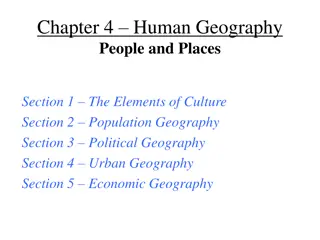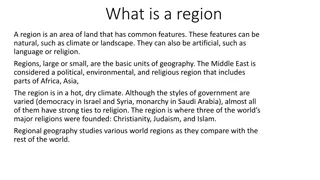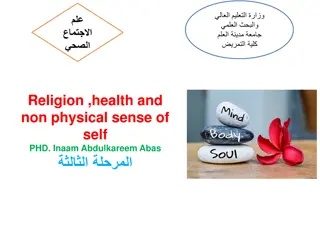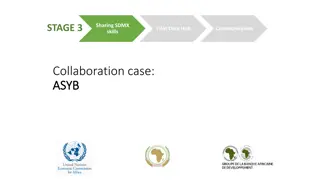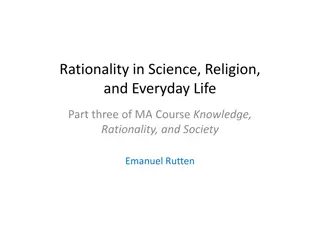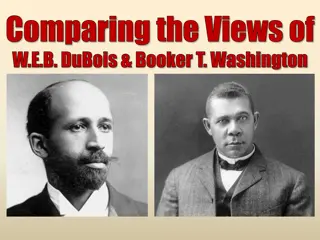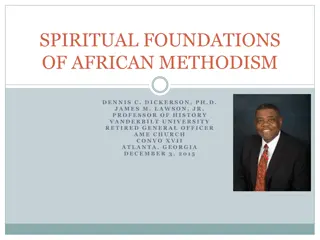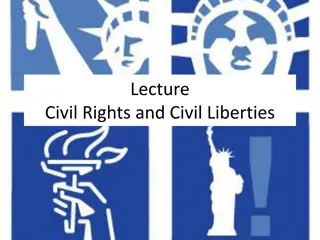Impact of Geography and Religion on African Society
African society was heavily influenced by geographic features such as diverse climates, terrains, and the Bantu migrations, which spread language, technology, and farming techniques. Additionally, religion, specifically animism, shaped beliefs and practices. The question posed at the end challenges the reader to consider which factor, geography or religion, played a more significant role in shaping African culture.
Download Presentation

Please find below an Image/Link to download the presentation.
The content on the website is provided AS IS for your information and personal use only. It may not be sold, licensed, or shared on other websites without obtaining consent from the author. Download presentation by click this link. If you encounter any issues during the download, it is possible that the publisher has removed the file from their server.
E N D
Presentation Transcript
Homework Test on Exploration/Mesoamerica/Africa Friday. Review sheet can be completed for two points.
Aim #5: How was African society shaped by geographic and religious characteristics? May 7, 2019
I. Africas Geography Diverse Climates and Terrains A. 1. Northern Africa is largely desert (Sahara): Very dry, extremely hot temperatures during the day, little vegetation. Contains plentiful salt mines. 2. Sahel Region Sub Saharan. Connects northern Africa to the Savanna. 3. Savanna Grassy plains in central and southern Africa. Generally have good soil, rain to support farming. Home to many of Africa s best gold mines. 4. Rainforests along the equator
II. The Bantu Migrations (500 B.C. 1500 A.D.) A. One of the largest migrations of people in history. B. Due to a shortage of land on the Niger Delta Basin, the Bantu people scattered throughout Africa over the course of 2,000 years. As they moved, they spread three things. Bantu language Iron technology Agricultural (farming) techniques.
III. Religion Animism - Belief that all living and non- living things have spirits that can bring good or bad fortune into human lives and need to be worshipped or given offerings. Departed ancestors were among these spirits.
Similarities between Animism and Monotheistic Religions Understanding of human need for a stronger power. Holy figures who explain the will of god/spirits Awareness of the spiritual realm Life after death
Differences between Animism and Monotheistic Religions Many gods or spirits. Often no scriptures. Some use magic as well as religious practice. Can t have a personal relationship with the spirits need shamans and healers to connect to them. Some spirits are evil or troublesome. Spirits are local rather than universal.
Concluding Question Which do you think will play the more significant role in shaping the culture of African society: geography or religion? Why?




